Managed Beehives for Your Property in the Washington, D.C. Area
Since 2010, The Best Bees Company has offered a unique, turnkey way for individuals and organizations to make a positive impact on the environment. Operating in D.C. since 2014, Best Bees is now the leading beekeeping service in D.C. and throughout the DMV.
We work with both residential and commercial clients, including Community Farms in Baltimore and Beacon Capital.
Request a Phone Assessment
Find out if your property is right for bees
Our Mission
To expand the bee population while improving the health of honeybees and other pollinators here in Massachusetts and across the world. Our locally certified beekeepers install and manage hives on your property and use the data we collect to drive the science of pollinator health forward with scientific partners that include Urban Beekeeping Lab, NASA, MIT and National Geographic.


Our Reach in the Washington, D.C. Area
160+ residential clients
15+ commerical clients
65+ hives
Services Provided in the Washington, D.C. Area
We offer innovative solutions that can help bring your corporate sustainability programs to life. These include the highest standards on beekeeping, as well as developed workshops and programs that will engage your community — employees, guests, tenants, community leaders, and the public — in your sustainability work.
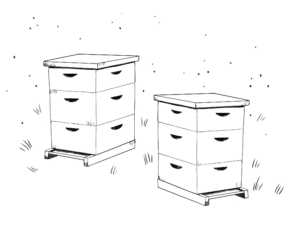
Commercial Services
Beekeeping for Your Residential Backyard
If you’d like to save bees, build a healthier environment, pollinate your garden, and have your own honey harvest, then our residential service is perfect for you! We offer turnkey beekeeping, honey harvesting, and DNA analysis designed for homeowners in a wide range of environments. Regardless of the size of your property — whether you garden on a balcony or have acres of land — we can install and manage one or several hives for you. .
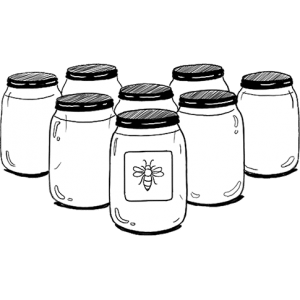
Residential Services
Beekeeping Education
![]()
We offer a number of educational programs at varying price points that have proven popular with commercial clients, schools, gardening clubs and organizations promoting sustainability.
Pre-recorded and live hive tours
Experience a guided tour as one of our bee experts takes you on a walk-through of your hive visits and inspections. Get a glimpse of the busy life of bees, and learn more on how to keep tenants engaged with their local environment. Live tours are available for up to 20 participants.
Meet an expert beekeeper
Participate in a beekeeper-led webinar and Q&A session. This virtual event is a great opportunity to learn about your bees through the lens of a beekeeper. We’ll discuss the data collected from your beehives, why bees matter, and what it's like to take care of your bees.
Virtual keynotes
Gain insight into the world of bees with our Chief Science Officer and Founder, Dr. Noah Wilson-Rich. Noah's knowledge of honeybee health and his passion for bee research will leave your audience spellbound, and with a wealth of new insight about our natural world. Our virtual keynote package includes signed copies of his book, The Bee: A Natural History.
We also offer free and open online programs, such as live meetings with beekeepers and educational webinars.
How Professional Beekeeping Works
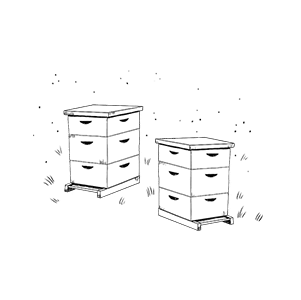
Installation
We help you choose an ideal location to establish one or more beehives at your home or workplace.
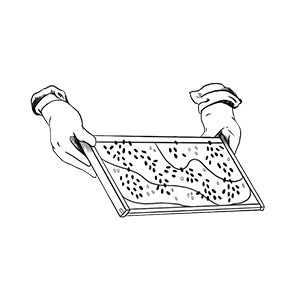
Maintenance
Our impassioned and experienced beekeepers service your beehives once a month, providing high-quality care and detailed reports.
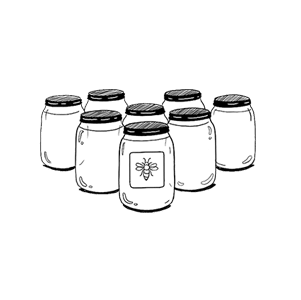
Harvesting
You keep 100% of the raw honey produced. We’ll handle the rest— small batch extraction and bottling with personalized labels.
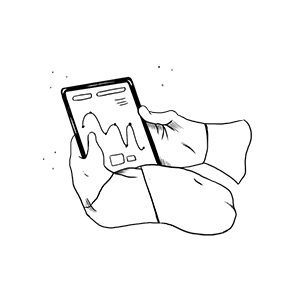
Research
At every visit, we collect data and share it with our research partners to advance the science of beekeeping and improve the health of pollinators worldwide.
Safe
Our honeybees, Apis mellifera ligustica, are the most docile species of honeybees, making our hives extremely safe and the instance of stings very unlikely.
We situate our hives in safe locations, secured from animal intrusion and weather damage.
Secure
Our beekeepers have extensive experience working in densely populated areas in and around Washington, and are experts at safe hive placement on rooftops, balconies, and gardens. They’ll work with you to site your hives in visible, low-traffic areas, where you can safely enjoy observing your bees as they come and go.
Insured
Our beehives and beekeepers are fully insured for personal liability and damage. We can provide you with a Certificate of Insurance (COI) if needed.

Beekeeping Laws in D.C. and suburban Maryland and Virginia
Beekeeping laws can vary by municipality. Beehives must be registered in the District of Columbia; Maryland also requires annual registration of beehives.
Virginia law gives inspectors the right to access hives to conduct health inspections.
All of our beekeepers are licensed to use pesticides and are certified for safe roof-top work.
Washington. D.C. Service Area
We service hives in the District and throughout the DMV, from White Marsh, MD in the north to Fredericksburg, VA in the south, including the following counties:
Baltimore county & baltimore city
Frederick County
Spotsylvania county
Fairfax county Arlington County Loudoun County
Montgomery County Howard County Prince George's County
What's Included
- Site Evaluation
- Hand-crafted, all-natural beehive equipment installed onsite
- A colony of docile honey bees (Apis mellifera ligustica)
- Monthly maintenance visits and follow up reports
- Advanced scheduling so you can alert your team
- Full-time customer service team available by phone or email
- Raw honey, harvested and bottled just for you
- Replacement colonies provided at no cost
- Fully insured professional service
About Local Honey
Honey production varies from colony to colony, depending on the strength of the queen bee, the health of the hive, and the availability of nourishment. New colonies tend to produce less honey than established ones. When there is a surplus of honey, we will harvest and jar it for you.
The composition and flavor of honey varies from hive to hive as well, depending on the floral species available to pollinate. This means that honey from your hive will have a unique profile. Tasting it, you’re tasting the composite of all the flowers your bees have visited! DNA analysis of D.C. area honey shows our bees are pollinating black-eyed susans, clover, coneflowers, echinacea, hollies, magnolias, milkweed, tulip poplars, zinnias, and of course, the iconic tree of the Washington spring, the Japanese Cherry! Most of the honey harvested in the area is light to medium color, but when buckwheat is in bloom, our Virginia hives produce a rich, dark honey.
In our studies of honey DNA, we’ve found that honey from urban hives includes a much wider range of species — as much as eight times more than honey from rural and suburban hives!
Many of our residential customers are planting native species in their gardens to help both honeybees and native pollinators.
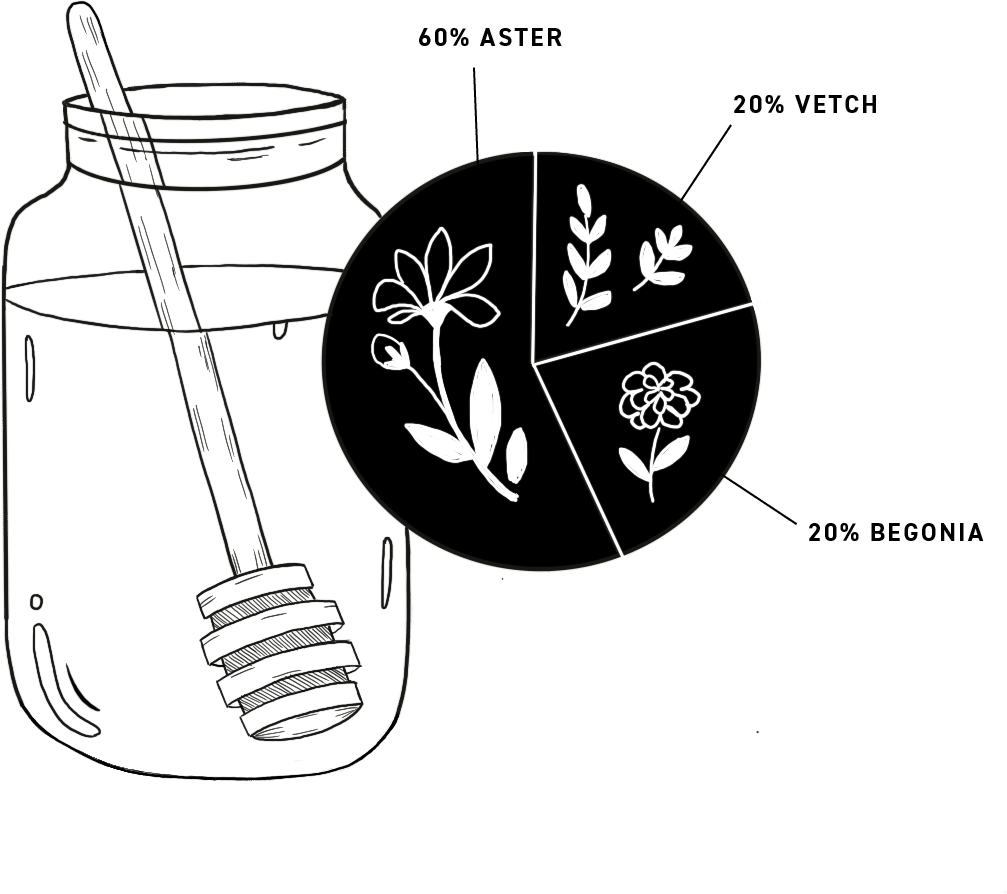
HoneyDNA
We pioneered the process of identifying the exact percentage of various pollen species found in honey through advanced genomic sequencing. Understanding where bees foraged reveals which plants best feed pollinators in the local environment.
Already Have a Hive?
At Best Bees, we’re proud to be a part of the local beekeeping community in every area in which we work. If you are not already a member of the D.C. Beekeepers Association, we strongly encourage you to join. You can learn more about them at www.dcbeekeepers.org.
Join our Citizen Scientist movement! Here are some ways you can participate:
- Plant more pollinator habitats on your property
- Use bee-safe pesticide alternatives
- Get involved in local and national lobbying
- Submit your honey for HoneyDNA
You can also post your data to bee Citizen Science programs like iNaturalist, The Great Sunflower Project, and Beecology Project.
We gladly share the learning from our research and our best practices with everyone. To learn more about the findings of our research work, visit https://bestbees.com/white-paper-resources/. To watch one of the TED Talks by our Founder and Chief Science Officer Dr. Noah Wilson-Rich, visit our Research page https://bestbees.com/research/ . Finally, to stay in the loop on our latest thinking, read our blogs at https://bestbees.com/blog/
Unique Challenges and Opportunities to Beekeeping in Washington D.C. Area
Unlike other regions of the country that have 2-3 distinct nectar flows, the Washington, D.C. area has only one very large flow that runs from late April through June. Because of this, we service our existing hives and set up new hives very early in the season to take advantage of the flow. With a big, fast flow, we must monitor the lives frequently, adding frames and boxes as needed, and rotating frames in and out of the hives to optimize honey production. With one large nectar flow, we don’t provide supplemental feeding until late in the season.
Pollen is an issue in the DC area — we have lots of it! So much, in fact, that our hives can become “pollen bound”, and frames filled with pollen must be scraped clean frequently, as they take up valuable room in the hive.
The climate in the DC area is very humid in the summertime, which can be an issue, as humid conditions attract hive beetles. Hive beetles eat the colony’s pollen and nectar, lay eggs in the hive, and produce larvae that excrete slime on the frames, leaving them unusable until cleaned. Monitoring and adjusting ventilation during the summer, especially in shady residential yards, is an essential task for our DC beekeepers to prevent hive beetle invasions.
With climate change, extreme heat comes sooner in DC, and on very hot days, we can’t use formic acid to treat hives for varroa mites. Consequently, we must monitor hives constantly in the spring to stay ahead of infestations.
The recently shorter, warmer winters in the Mid-Atlantic region are helping to reduce winter colony loss. This past year, 80% of our DC area colonies over-wintered, which is far above the national average! Healthy over-wintered colonies are more likely to swarm, so our beekeepers closely monitor them in late spring so that swarming colonies can be captured and rehoused. Our goal is to rear our own local queens and new colonies, eliminating the need to import queens and colonies from other areas, as local colonies are better adapted to the environment.
Like many of the cities we work in, Washington and the communities around it have a very strong environmental movement, which is one reason we have so many roof-top hives.
“It’s a wonderful, green area!” exclaims Best Bees beekeeper Emily Lawes. “So many beautiful places in the Capital, and in the suburbs and farmland nearby. I see something new and interesting on every customer site visit I make!”
Bringing Innovative Beekeeping Practices to the Washington, D.C. Area
With every hive serving as a datapoint, we’re able to observe bees in a wide variety of conditions and test alternative treatments in hives across the country. This allows us to introduce successful innovations to Washington, D.C. and take learning from our D.C. hives to other cities.
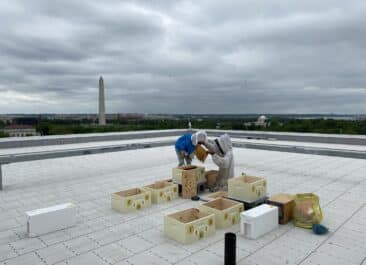
Frequently Asked Questions
We install and maintain honeybee hives on your property. Our expert beekeepers monitor the health of your bees and perform a variety of tasks throughout the year to help them thrive. At each visit, we also capture a range of metrics and share the data with renowned research partners to help the scientific community better understand the plight of pollinators. Towards the end of the season, we extract the honey and jar it for you.
About once per month for our D.C. Area hives. If your bees are distressed and need extra support, supplemental visits are included. We coordinate each visit in advance and send a summary report afterward.
Only a few square feet! A beehive takes up as little as 2’ x 2’ x 3’. Our beekeepers need a few feet around the hive to access it, and the bees’ flight path will need to be unrestricted.
In the DC area, we typically install hives when all threat of winter has passed, which is typically in early April. Installations after June are accommodated on a case-by-case basis, depending on our inventory levels.
We fully guarantee the health of our bees and queens. If a colony dies, we’ll replace it with a healthy one from our own stock at no additional cost. While we hope each of our hives will thrive for years to come, the reality is that pollinators are still dying at an unprecedented rate. In places like Boston, where winters are often severe, we can lose 40-50% of our hives annually.
Our Boston-based headquarters is staffed full time and available Monday through Friday during work hours by phone or email to answer any questions. When a colony requires extra attention, additional visits are made at no cost to you.
Yes, we provide a range of event support packages for our commercial clients. See Hive Programs for Commercial Customers for details.
Green roofs earn credits toward a building’s LEED (Leadership in Energy and Environmental Design) certification. Green roofs provide vegetation for water control, wildlife habitat, and better urban air quality. Honeybees can help maintain the green roofs that are becoming more common in big cities and thus contribute to a building’s LEED rating.
We service hives in Washington, D.C. and throughout the metropolitan area, from White Marsh MD in the north to Fredericksburg VA in the south, including D.C. proper and the Montgomery, Fairfax, Loudoun counties and more in Virginia and Maryland.
We handle visit scheduling for you. We’ll contact you at least 72 hours in advance via email.

